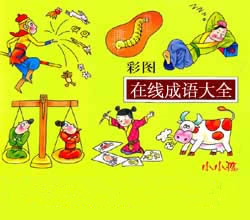英文读后感-A Book of All Times
Written in the first chapter of the book Pride and Prejudice is an extraordinary sentence of which even a person who has had only a brief look upon the book will not fail to receive a deep impression-It is a truth universally acknowledged that a single man in possession of a good fortune must be in want of a wife. In terms of Sherlock Holmes, we’d better alter the sentence into “It is a fact universally accepted by readers throughout the world that an excellent book in possession of our famous detective Sherlock Holmes is undoubtedly a masterpiece of all times.” Perhaps this is one of the most obvious explanations for the unrivaled popularity of “Holmes series” in the field of detective stories. Overwhelmed by the recommendations provided by my friends, I decided to take a look on this Sherlock Holmes and the Duke’s Son originally published by Oxford University Press.
As a whole, this book is about a case concerning the Duke’s missing son. Arthur, the Duke’s son, was found out in a certain morning to have disappeared, accompanied with which was also the disappearance of the German teacher. The school master Dr. Huxtable then turned to the famous detective of the time Sherlock Holmes for help. Realizing how tough and important the case is, Holmes immediately made up his mind to accept the case and followed Dr. Huxtable back to Mackleton by train. Having formed a rough idea about the whole matter, Holmes probed into the case immediately and had a careful investigation of the entire area shortly after the arrival, during the process of which he discovered the body of the German teacher Heidegger. Finally, primarily due to his prominent ability as a detective, he managed to unravel the mystery and obtained the twelve thousand pounds promised by the Duke.
Having once started reading this fiction, I was completely immersed in the mysterious story presented by the book. As the saying goes, “Well begun, half done”. At the beginning of the story, just like many other detective stories, the author gives us a brief description of the condition by the words of a client. However, unlike other ones, this story first delineates the client’s strange behavior at length to indicate the severity of the incident in order to attract the readers to continue reading it. As is known to all, vivid depiction is essential to detective stories since it can help the readers understand each figure’s characteristics and visualize the scenes, thus making the story more authentic and attractive. Therefore, trying to present a “real world” to his readership, Sir Arthur Conan Doyle, author of the original “Holmes series”, has skillfully arranged the plots of the whole story from the perspective of Dr. Watson, a character not so specialized in discovering the truth hidden behind the enigmatic happenings as Holmes but so loyal to Sherlock Homes as a friend that he always accompanies Holmes wherever he goes. In this way, he elaborately depicted every scene and character in the book, Apart from the special start, the ending of the whole story, being dramatic but reasonable, is certainly an outstanding one. After all, except the author himself, who knows that the Duke’s seemingly ordinary secretary is in fact the Duke’s bastard? In addition, who knows that the Duke actually has already been acquainted with the whole thing before Holmes solves this complicated problem? Yet, surprising as it is, this ending seems so natural that it fits all the plots of the story perfectly well. While enjoying this wonderful story, I could do nothing but admire the wonderful design of this masterpiece as well as the author’s gorgeous writing skill. Closing my eyes, I can even “see” the story happening just like watching a film. Not until then did I understand why the Japanese cartoon film Detective Conan used this “Conan” as the name of its hero.
As far as I am concerned, nothing is more admirable and surprising in the hero Sherlock Homes than his profound knowledge which has certainly assisted him a lot when he was studying the case. Take the bicycle tyres for instance, Holmes actually is capable of recognizing 42 different varieties of bicycle tyres. What’s more, according to his other stories, Holmes has studied different kinds of newspapers, cigarettes, people’s footprints and other special things as well. Therefore, he seems to have the mastery of anything relevant to the cases he deals with. Except for his illimitable knowledge, Holmes also specializes in arranging the facts in order and then finding the fact leading him to a great discovery or even the truth itself. From his speaking “Every mystery has an answer”, we can readily shape the impression of a man with great intelligence and inflexible will. In this case, after getting rid of unrelated facts, Sherlock Homes eventually grasped the clue and discovered the amazing fact.
Needless to say, as a world-renowned masterpiece, Sherlock Holmes and the Duke’s Son has attracted and is still charming numerous readers from all corners of the world and people from all walks of life. The “Holmes series” has already set up a standard against which all the following detective fictions are measured. Sherlock Holmes, beyond all doubt, has become a name firmly rooted in people’s memories. Although Dr. Watson’s closing The Case Book of Sherlock Holmes in 1927 was a great pity to the readers, the discontinuance of the entire “Holmes series” may have actually added to the legendary stature of Sherlock Holmes.
相关作文: 小鸟 找朋友、小鸭子得救了、我的妹妹、吃火锅的作文、有意思的一天、我爱西瓜、爸爸爱我我也爱爸爸、难忘的漂流、一个气球的启发、考试后的感受
热门作文成语素材
- 哀感顽艳 原意是指内容凄切,文辞华丽,使愚笨和聪慧的人同样受感动。后多用来指艳情的小说、戏曲、电影中的感人情节。
- 分我杯羹 羹:肉汁。楚、汉相争时,刘邦答项羽的话。比喻从别人那里分享一分利益。
- 风不鸣条 和风轻拂,树枝不发出声响。比喻社会安定。
- 匪夷匪惠 夷:殷末周初的伯夷;惠:春秋时鲁国的柳下惠。既不是伯夷,又不是柳下惠;不具备这两位贤人的品德。形容才德不高而又驾驭的人。
- 分茅裂土 原指古代帝王分封诸侯时举行的仪式。后称分封诸侯。
- 安分知足 安于本分,对自己所得到的待遇知道满足。
- 白发青衫 青衫:无功名者的服饰。谓年老而功名未就。
- 白眉赤眼 比喻平白无故。
- 摆袖却金 比喻为人廉洁,不受贿赂。
- 诽誉在俗 诽:指诽谤;誉:赞扬;俗:风气、习惯。诽谤或赞扬在于当时的风习。后来引申指风气、习惯的作用非常大。
- 分毫不爽 比喻没有丝毫差错。
- 挨肩擦背 形容人多拥挤。
- 肥马轻裘 裘:皮衣。骑肥壮的马,穿轻暖的皮衣。形容阔绰。
- 不尴不尬 比喻左右为难,不好处理。也形容样子别扭。
- 飞蛾投火 象蛾子扑火一样。比喻自找死路、自取灭亡。
